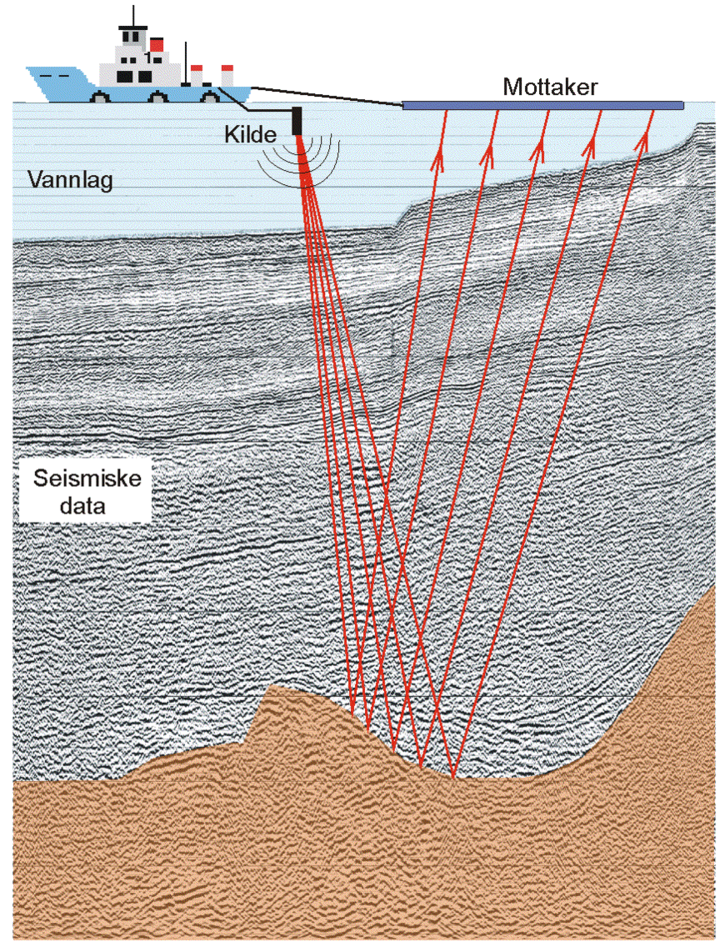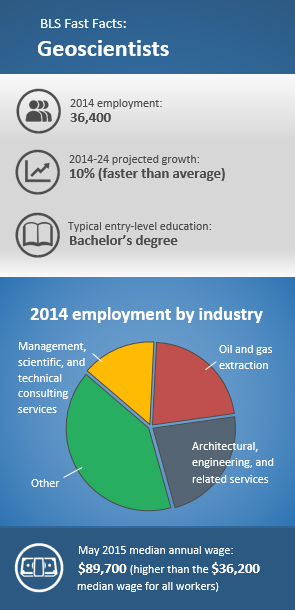All Categories
Featured
Table of Contents
Geophysical Methods Commonly Employed For Geotechnical ... in Koondoola WA 2023
This work is progressively contracted out, so consultancies supply another source of employment. Consultancy companies vary in size, from really small companies to large multinationals. Some consultancies are quite specialised in using specific geophysical techniques or operating in specific places, while others use a more diverse variety of services to their customers.
The extraction of gas from garbage dump sites is another location of employment and this might grow in the future. Expedition business may carry out work for building firms, public utility, mining business and environmental agencies, so geophysicists might be employed in any of these settings. Other employers consist of: geological surveysgovernment bodies and agenciesuniversities and research study institutes.


Vacancies may be noted in the oil and gas sector press. Recruitment is impacted by oil rate fluctuations and the level of competition for positions differs depending upon this. Careers Days, which cover the full variety of geoscience careers and are normally attended by a number of key industry companies, are run by The Geological Society.
Geophysical Surveying in Millendon Aus 2020
A few of the large oil and gas business offer a complete two-year structured training program throughout the breadth of geophysics, consisting of the opportunity to experience work in various groups before specialising in one area. Your training might consist of work on: existing wellsmagnetic and gravitational prospective field information analysisresearchrock analysis. It's more usual for your initial training to be provided on the job.

There may be a probationary period during which you work together with an experienced associate. Competency-based appraisals take place regularly in the majority of firms. In smaller companies, and for scholastic posts, there is not likely to be any official training - you'll be anticipated to start work straightaway and get skills as you go along.
If you work for a smaller company, you might find that you need to take obligation for arranging and moneying your own development and training. If you have a geology degree, membership of The Geological Society can be beneficial for networking and for keeping up to date with the market.
Job Profiles : Geophysicist Physics in Shoalwater Aus 2023
You might also find it useful to sign up with the PESGB (The Petroleum Exploration Society of Great Britain, which has a geophysics special interest group. After a probationary duration, and once you have actually gained some experience, you could progress to senior geophysicist, then group leader and after that into a senior function in management.
The ease of motion between roles depends upon the company structure. Study at Masters or Ph, D level in a subject associated to geophysics or geosciences might aid with your career advancement and progression. The work market within the oil and gas market is extremely depending on cost and this may affect your opportunities for profession development.
For experienced geophysicists, freelance consultancy uses a great route for profession development. As a geophysicist, you're likely to have numerous tasks throughout your working life.
Bachelor's Degree In Geophysics - Degrees & Programs in Applecross Oz 2020
From geophysics, it's possible to focus on seismology (completing further training to end up being a seismic interpreter) or to move into related locations such as engineering geology or risk prediction.
Choosing what to study in college is a tough option. Even if you understand that your field of interest lies in science, what program of research study is ideal for you? If you make the decision to significant in physical and life sciences and pursue a profession as a geophysicist, you're preparing for an amazing and rewarding profession.
But the primary step to attaining your goal of becoming a geophysicist is earning a degree. Even for entry-level positions in the field of geoscience, you'll require a bachelor's degree (a geophysicist college degree) from a certified college or university. Some research positions require prospects to hold master's degrees and even Ph.
Airborne Geophysical Surveys in Casaurina WA 2022
Doctoral degrees are specifically essential if you plan to teach at a four-year institution. Geophysicists apply physics concepts and methods to study the gravitational, magnetic, and electrical fields of the earth. This enhances scientists' knowledge of both the world's interior core and its surface. Geophysicists need to have the ability to: evaluate rocks, photos, and other pieces of information perform research study both in the field and in labs create maps and charts of their findings write reports To accomplish all this, trainees require a specialized education for geophysicist careers.
As specified above, you'll require a bachelor's degree in geoscience or a related discipline, such as a physical science or a life sciences, to land an entry-level job. But trainees can likewise prepare by majoring in subjects like: Biology Chemistry Computer system science Engineering Mathematics Physics The above geophysicist majors provide a more generalized technique to a single scientific discipline, however many programs need students to take several geology course.
Table of Contents
Latest Posts
How To Become A Geophysicist in Mount Claremont Oz 2023
Geophysical Survey Next Step In Carbon Storage Study in Brookdale Western Australia 2023
Geophysical Investigations in Calista Western Australia 2022
More
Latest Posts
How To Become A Geophysicist in Mount Claremont Oz 2023
Geophysical Survey Next Step In Carbon Storage Study in Brookdale Western Australia 2023
Geophysical Investigations in Calista Western Australia 2022